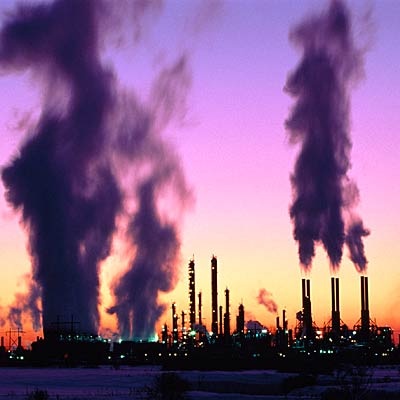Environmental policies of a nation are without a doubt related to its economy. There are costs associated with energy resources and the effect of the resources on the environment, as well as costs and benefits associated with depletion of the environment that relates to air pollution, water pollution, solid waste management, toxic waste, fossil fuels, global warming, and so on.
Environmental economics
The field of economics that deals with the environment is referred to environmental economics. This is a sub field of economics, which emphasizes on economy and describes economy as a subsystem of ecosystem. Environmental economics also focuses on preservation of our natural capitals, such as land air, water, mining, fossils, and all other natural resources.
Ecological economics
Ecological economics is another field of economics which is defined as both interdisciplinary, and transdisciplinary academic fields of study, aiming to focus on the co-evolution and interdependence of natural ecosystems and human economies over a given period of time and place.
The difference between environmental economics and ecological economics is that environmental economics makes mainstream economic study of the environment. Economy is treated as a “subsystem” of the ecosystem, emphasizing on prevention of natural capitals.
Ecology VS. Economics
 From definition of the two fields of economics, we can clearly see that both the fields of economics consider eco-system as the main system that controls economy of a given space and time. Many people thought about doing something good about the environment but it seemed to interfere with economy and how they build their wealth. Both ecology and economy was viewed as two separate and independent fields and most people thought that it isn’t possible to tackle the environmental issues without taking care of economic issues first. However, this point of view about economics and ecology has been proven to be a huge mistake.
From definition of the two fields of economics, we can clearly see that both the fields of economics consider eco-system as the main system that controls economy of a given space and time. Many people thought about doing something good about the environment but it seemed to interfere with economy and how they build their wealth. Both ecology and economy was viewed as two separate and independent fields and most people thought that it isn’t possible to tackle the environmental issues without taking care of economic issues first. However, this point of view about economics and ecology has been proven to be a huge mistake.
Ecology and economy are actually two sides of the same coin, and cannot be separated. Economic development thorough depletion of ecology is by no means a real positive economic development, and we will see in details how that work.
Ecology and Environmental science – How it relates to economy?
 Ecology is a branch of biology, so how does it relate to economy? Yes, ecology and environmental science are two disciplines of science that deals with human beings, and the interdependency of all living and non living things surrounding humans. So, the living and non living things coexist in our environment in their natural surroundings, and we as human beings, have also evolved through consuming the natural resources around us, and therefore, we are also part of the ecosystem.
Ecology is a branch of biology, so how does it relate to economy? Yes, ecology and environmental science are two disciplines of science that deals with human beings, and the interdependency of all living and non living things surrounding humans. So, the living and non living things coexist in our environment in their natural surroundings, and we as human beings, have also evolved through consuming the natural resources around us, and therefore, we are also part of the ecosystem.
So why we are different form the other organisms of the nature? Human beings have evolved to be very complex beings. We are the most intelligent beings known today by, anywhere in the vast universe. Infect, we could be the only intelligent being in our own Galaxy.
Environmental science is a vast interdisciplinary field of study that includes knowledge of physics, chemistry and biology, and try to address the global environmental issues and figure out how the natural forces and man caused negative impacts shape and affect us in our natural surroundings.
An environmental scientist is slightly different from an ecologist in a way that an environmental scientist would seek for solutions by getting information from an ecologist. so the job of the ecologist is only to inform, while the environmental scientist studies and finds positional dangers or solutions concerning any environmental issue.
We cannot ignore the possibility of our social collapse, and therefore, sustainability is a big issue for future of humankind. Economy of a country cannot prosper only by addressing issues like poverty or mortality, but also need to focus on sustainability. If it causes social degradation, the economic development would not be regarded as positive economic gains.
For example, access to clean water is going to cause a major conflict in the next decade or so as the environmental scientists predict. Our demands for reusable energy sources and natural resources and shortage of energy resources is also going to be a major problem, and the third world countries are going to be affected the most due to environmental depletion.
The environmental science and economics
 Our environmental policies play a major role in our economic development. Our true development and GDP needs to take environmental impacts into consideration. For example, there are costs associated with excessive pollutions, healthcare costs, and other costs such as public health and safety issues, and waste management, including toxic waste. Environmental science looks into how our policies impact both our global and local economy and sustainability and widespread long term gain among general population.
Our environmental policies play a major role in our economic development. Our true development and GDP needs to take environmental impacts into consideration. For example, there are costs associated with excessive pollutions, healthcare costs, and other costs such as public health and safety issues, and waste management, including toxic waste. Environmental science looks into how our policies impact both our global and local economy and sustainability and widespread long term gain among general population.
One common reason why a product may fail in market today is by misuse of natural resources or if the product is not eco-friendly by today’s market standards, and that is something many sustainable companies around the world are looking into. Environmental scientists ensure that common resources stay around and deliver benefits for use of common people, and not being misused or destroyed by few handfuls of individuals or companies.
As technology has increased, our need and demands for more natural resources has also increased. Few common natural resources, which were considered infinite, are now being viewed as finite common resources such as air, water, soil and so on, and therefore preservation of natural resources have also become one of the vital elements for economic development in any given time or space. By emitting large amount of polluting agents in the environment can negatively impact the common property, such as air, which affects us all, including the developing nations.
Source: Institute of Ecolonomics

Recent Comments